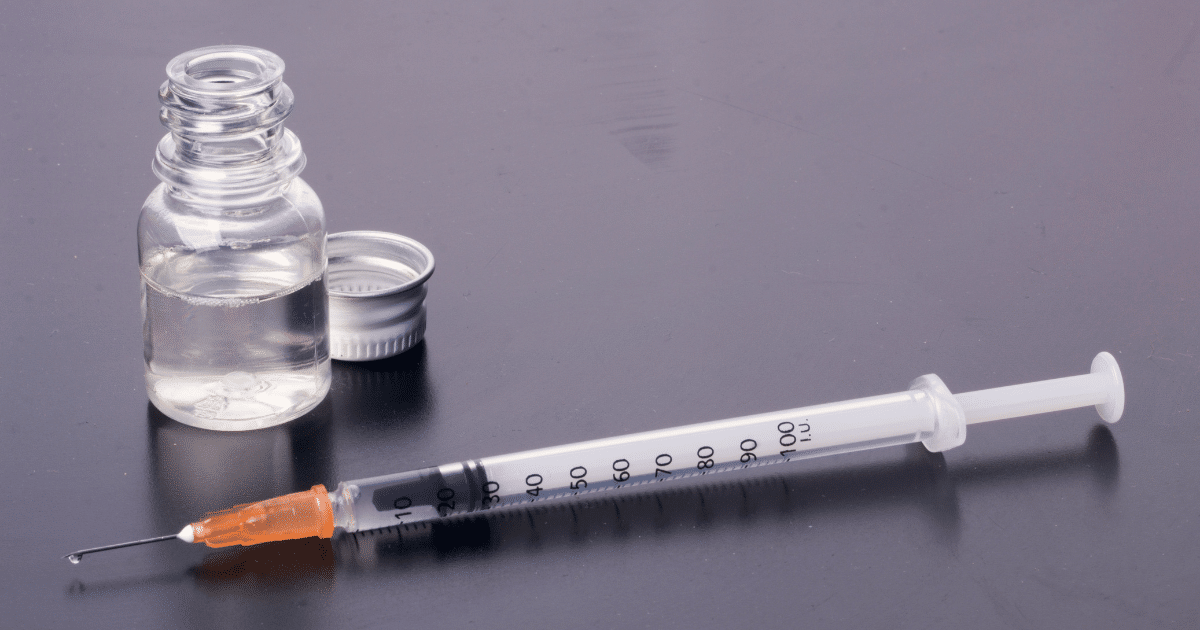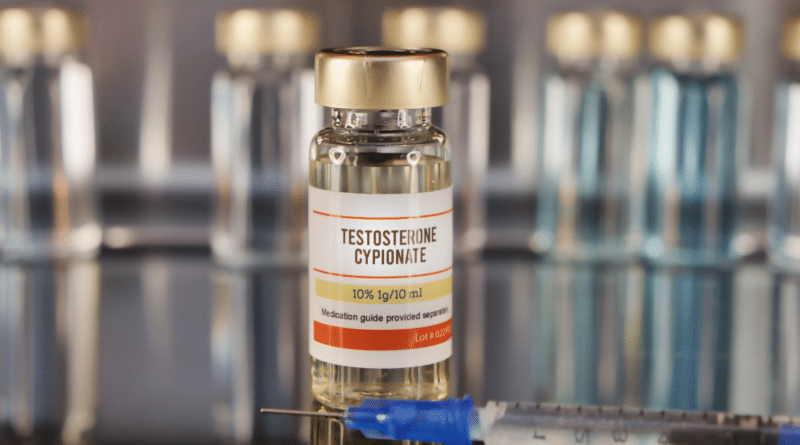Navigating TRT Costs: Does Insurance Cover TRT Therapy?
If you’re considering testosterone replacement therapy (TRT therapy), you’re not alone. Many men grapple with the decision to start TRT, hoping it will bring back their vigor and improve their overall quality of life. But, the TRT costs cause many to pump the brakes abruptly. Men understand that testosterone helps with many things, but the costs of testosterone therapy might be enough to empty their bank accounts.
The use of testosterone and the amount of testosterone men need can vary. That said, there’s a significant hurdle that often goes overlooked until you hit it head-on: the cost. With healthcare expenses being a common concern for most people, figuring out how to afford TRT can be as challenging as dealing with low testosterone levels themselves.
One fact stands out — while some health insurance plans extend coverage for TRT costs, others leave patients covering high costs from their own pockets. It’s a complex landscape of policies and paperwork where understanding your coverage is key.
This article aims to demystify insurance involvement in the realm of TRT by guiding you through what might or might not be covered and highlighting alternatives worth considering, ensuring that finances don’t stand between you and potential treatment benefits.
Dive in to learn more about stretching your healthcare dollar when it comes to managing low testosterone — a read that could lead you closer to affording the care you need! Let’s learn more about testosterone, how it can help you, if your insurance will cover your TRT, and what the TRT costs are!
Disclaimer: This article is for informational purposes only and is not meant to treat or diagnose any condition. It is recommended that you speak with your doctor if you feel you suffer from low testosterone and to better understand what options you have available, such as testosterone boosters, prescription testosterone, and if you are considering testosterone therapy.
Table of contents
Key Takeaways
- Insurance coverage for TRT costs can vary, with some plans covering costs and others not. It’s important to check your specific policy.
- Different forms of TRT, such as injections or gels, may have different coverage levels depending on the insurance plan.
- Understanding the factors that determine insurance coverage for TRT costs is key; these include medical necessity and whether treatment is within an insurer’s network.
- Lifestyle changes and natural supplements can be alternatives if traditional TRT therapy isn’t covered by insurance or is too expensive.
- Long-term TRT costs need careful consideration; research your insurance plan thoroughly to understand potential out-of-pocket expenses.

Understanding TRT Therapy and the Potential Benefits and Risks
Testosterone therapy in men is a growing trend, and many are experiencing the magical effects of testosterone replacement. Testosterone replacement therapy (TRT) is a treatment for men with low testosterone levels, which can have positive effects on sexual health, aging, and vitality. There are different forms of TRT available, including injections, pellets, patches, and gels; however, it’s important to consider the potential risks and side effects before starting treatment.
Related Article: HRT vs. TRT — Decoding the Hormonal Puzzle for Your Health
While some men naturally have low natural testosterone levels, others may suffer from fluctuations in testosterone levels due to age (testosterone levels will decline as men age) or even previous testosterone use, such as abusing anabolics. Older men on testosterone can see some pretty dramatic changes when they take testosterone replacement. That said, the overall benefits of testosterone replacement therapy can be experienced by nearly all men as the dosage can be changed to achieve the best results possible.
But before you do anything, you’d need to know your testosterone levels. You can get something like an at-home testosterone test or speak with your doctor and they may send you for blood work.

Based on how your body is responding to the testosterone-replacement therapy, a doctor can change the mg of testosterone you’re using in order to get the full effects of TRT therapy. Men over 60, men over 70, and men over 80 can find that testosterone may provide them with extra vigor and pep in their step, and that TRT may improve their ability to maintain their activity level as they age. But the use of TRT therapy can really be benefited by men of all ages when prescribed under a doctor’s supervision.
What is testosterone replacement therapy?
Testosterone replacement therapy boosts hormone levels in men with low testosterone. This treatment helps them feel more energetic and improves their sex drive. Doctors offer TRT in several forms, like injections, gels, patches, or pellets that go under the skin.
Related Article: Beyond the Numbers — Interpreting Your Testosterone Test Results
It’s also known as androgen replacement therapy.
Choosing the right form of TRT is key. Some men prefer a gel they can apply daily, while others go for less frequent injections or implanted testosterone pellets. Each method has its own risks and benefits to consider carefully before starting therapy. One of the forms of testosterone that isn’t recommended is oral testosterone, which tends to be harsh on the liver.
Side effects could include acne, sleep apnea, and an increased risk of heart issues or prostate cancer.
Effects of testosterone therapy on sexual health, aging, and vitality
TRT can boost a man’s sex drive and energy levels. It helps many tackle the frustrating effects of low testosterone or when testosterone levels drop with age, like losing interest in sex or struggling to keep up with daily tasks.

As men get older, their bodies make less testosterone. This drop can lead to feeling tired all the time and not having much strength.
Using TRT might turn things around by renewing sexual health and increasing zest for life. Men who start TRT often say they feel more alive, have better moods, and enjoy intimacy again.
Related Article: 5 Ways Testosterone Enhances Health & Well-Being
But it’s not just about sex; this treatment may also help muscles stay strong and minds sharp as men age.
Forms and benefits of testosterone therapy (injections, pellets, patches, gels)
Testosterone replacement therapy comes in several forms to suit different needs and preferences. Here’s a breakdown of the options available:
· Injections: Testosterone injections are often given every two to three weeks. They go into your muscles and release testosterone slowly.
· Pellets: A doctor puts tiny pellets under your skin every few months. These pellets provide a steady hormone level.
· Patches: You wear testosterone patches on your skin. Change them each day for a consistent dose.
· Gels: Testosterone gel is easy to use. Apply it daily to your clean, dry skin.
Risks of testosterone therapy and when you take TRT
The risks associated with TRT and the safety of TRT therapy are always something men worry about. Testosterone replacement therapy comes with potential risks, side effects of testosterone, and considerations that individuals should be aware of. These risks may include an increased risk of blood clots, sleep apnea, breast enlargement, acne, and decreased testicular size.
It’s important to understand that the literature suggests that TRT can also affect fertility by reducing sperm count. Additionally, there is ongoing research that TRT may help heart health and prostate cancer risk. The effects of testosterone replacement therapy can help lower the risk of premature death by improving several health markers as you age.
Considering these factors alongside the benefits is crucial for making an informed decision about pursuing testosterone replacement therapy.
Insurance coverage for TRT costs can vary widely between plans and providers, so individuals considering this treatment should carefully review their policy to understand the extent of coverage available to them.
Does Insurance Cover TRT Costs?
Insurance coverage for TRT therapy can vary depending on the provider and individual circumstances, so it’s important to explore your options and understand the factors that determine coverage.
To learn more about navigating TRT costs with insurance, keep reading!
Insurance coverage for testosterone treatment and TRT costs
Navigating the costs of testosterone replacement therapy (TRT) often involves understanding insurance coverage. It’s crucial to note that many health insurance plans cover at least part of the costs for medically necessary TRT, but coverage levels can vary between plans.
For instance, United Healthcare and Blue Cross Blue Shield may offer coverage options for TRT costs, with varying extents of support depending on specific insurance plans. However, it’s essential to conduct thorough research into individual insurance coverage options and out-of-pocket costs when considering TRT.
Consider researching specific insurance providers like Blue Cross Blue Shield or United Healthcare for potential TRT coverage. Take note that while some individuals find cost assistance through their healthcare plans, actual availability varies based on provider and plan specifics.
Factors that determine TRT costs and TRT insurance coverage
Factors that determine TRT costs and TRT insurance coverage:
1. Type of Insurance Plan: Coverage for TRT costs vary between insurance plans, with some offering comprehensive coverage while others may cover only certain aspects of the treatment.
2. Medical Necessity: Insurance coverage often depends on whether the treatment is deemed medically necessary, which can be determined by specific diagnostic criteria and serum testosterone levels.
3. Prior Authorization Requirements: Some insurance providers require prior authorization before covering TRT costs, adding an additional step to the approval process.
4. Provider Network: Insurance coverage may be influenced by whether the healthcare provider administering TRT is within the insurer’s network, affecting reimbursement rates and out-of-pocket costs for the individual.
5. Formulary Inclusions: The specific formulations or types of testosterone therapy covered by an insurance plan’s formulary can impact coverage eligibility and cost-sharing for the individual.
Alternatives to traditional TRT therapy
Before embarking on traditional TRT, it’s worth considering alternative approaches. Lifestyle modifications such as regular exercise and a balanced diet can naturally boost testosterone levels.

Herbal supplements like fenugreek and ashwagandha have shown promise in some studies for increasing testosterone production. Additionally, managing stress and ensuring sufficient sleep are crucial for maintaining healthy hormone levels.
Understanding these alternatives can help individuals make informed decisions about their health.
Considering the long-term TRT cost to take testosterone
Long-term TRT costs for the use of TRT therapy can vary widely depending on insurance coverage and individual treatment plans. It’s crucial to research and understand your options to avoid unexpected out-of-pocket expenses.
Related Article: Is Your Natural Testosterone Level Low? Here’s How to Fix It
Some insurance plans cover part of the TRT costs for necessary testosterone replacement therapy, but specifics differ between providers and policies. United Healthcare and Blue Cross Blue Shield offer coverage options for TRT, yet the extent of coverage depends on your plan.
Government reimbursement may only apply under specific diagnostic criteria, potentially impacting access to treatment. Researching insurance coverage thoroughly is essential to avoid potential financial burdens.
Careful consideration of long-term TRT costs involves factoring in potential fluctuations in drug reimbursement policy, which can affect access to treatment. It’s important for individuals seeking information on insurance coverage for testosterone therapy or injections from providers like United Healthcare or Blue Cross Blue Shield to remain informed about how their particular plan covers such treatments.
Navigating TRT Costs with Insurance to Fix Low Testosterone
To wrap it all up, TRT costs can be covered by insurance but vary depending on the provider and specific plan. Understanding your insurance coverage options is crucial for managing the expenses of testosterone replacement therapy.
By researching and clarifying your coverage, you can navigate the financial aspects of TRT more effectively. This practical approach ensures that individuals considering TRT therapy are well informed about their insurance options and potential out-of-pocket costs.
Emphasizing clarity in understanding insurance coverage helps in making informed decisions regarding TRT costs, leading to better management of overall healthcare costs. And if you want some extra reading, I highly recommend this book that goes into even more details about TRT therapy.
FAQs
Testosterone replacement therapy (TRT) helps men with low levels of testosterone, often seen in older men. It can improve symptoms like tiredness and mood changes.
Yes, there are risks associated with testosterone therapy, such as a higher risk of heart attack or boosting red blood cell count too much.
It depends on your plan — some insurance companies cover TRT for men diagnosed with testosterone deficiency, but always check your coverage first.
Doctors measure your testosterone levels through blood tests to see if you have symptoms of low testosterone, which can include feeling weak or having a lower sex drive.
Sure! Testosterone comes in many forms, including gels, pellets, injections like testosterone enanthate or undecanoate, and even oral tablets.
Men taking proper doses under medical guidance may feel more energetic, see an increase in muscle mass, and experience improved mood thanks to the effects of hormone therapy.


*Disclosure: This article may contain affiliate links or ads, which means we earn a small commission at no extra cost to you if you make a purchase through these links. These commissions help support the operation and maintenance of our website, allowing us to continue producing free valuable content. Your support is genuinely appreciated, whether you choose to use our links or not. Thank you for being a part of our community and enjoying our content.
PLEASE CONSIDER SHARING THIS ON YOUR SOCIAL MEDIA TO HELP OTHERS LEARN MORE ABOUT THIS TOPIC. SIMPLY CLICK BELOW!

